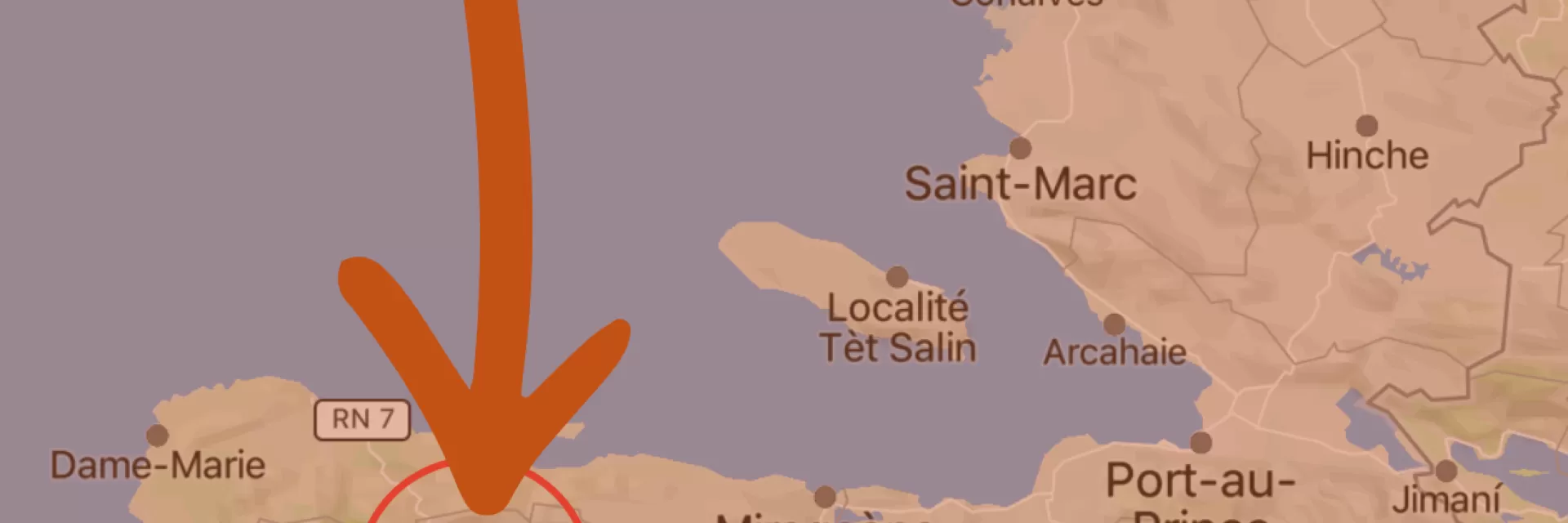Extreme poverty is one root cause of the chaos, violence, hunger, and migration in Haiti. All of Quixote Center’s work prioritizes systemic change. Our theory of change in Haiti has three aspects:
-
Economic development initiatives that lead to meaningful and sustainable jobs and income for families and communities;
-
Reforestation to preserve Haiti’s environment and protect the soil and watershed;
-
Advocacy to promote U.S. policies that support Haitian democracy and Haitian-led solutions to poverty, violence, and migration.
 Our economic development work addresses the systems and structures that prevent Haitian families and communities from supporting themselves. Systemic change requires meaningful participation and ownership from affected communities. Without this, the intervention or investment is simply outsiders telling Haiti what they think is best for Haiti.
Our economic development work addresses the systems and structures that prevent Haitian families and communities from supporting themselves. Systemic change requires meaningful participation and ownership from affected communities. Without this, the intervention or investment is simply outsiders telling Haiti what they think is best for Haiti.
Our economic development initiatives begin with a community survey. Last spring, together with our partner DCCH (Développement Communautaire Chrétien Haïtien) we initiated a survey in Gouin, located in the third section of the commune (like a county) of Les Cayes, in the south. DCCH and Quixote Center wanted to understand what interventions will make a difference in the economy of the commune so that families can support themselves. Specifically, the study objectives were:
-
 Identify the income-generating activities in the community;
Identify the income-generating activities in the community; -
Identify promising income-generating opportunities to develop further and support;
-
Identify barriers and constraints to income-generating activities.
The primary economic activities in Gouin are agriculture and livestock breeding. There is some small-scale commercial trading, also based primarily in agriculture and livestock, with additional trade in consumer goods brought in from the outside. All of the families rely on these three types of income-generating activities; some receive additional income from other activities, such as sewing, driving, or teaching.
 Like everywhere in rural Haiti, the community is extremely poor. There is no local health center and limited access to schools. The landscape has been heavily deforested for charcoal production, a cash crop. This has led to soil erosion and decreased agricultural yields. Lack of economic opportunity leads most young people to leave the area in seek of employment.
Like everywhere in rural Haiti, the community is extremely poor. There is no local health center and limited access to schools. The landscape has been heavily deforested for charcoal production, a cash crop. This has led to soil erosion and decreased agricultural yields. Lack of economic opportunity leads most young people to leave the area in seek of employment.
The study surveyed 134 people, 55 women and 79 men. The process included focus groups as well as interviews.
Although participants stated that none of them keep track of their income and losses, they insisted that their primary economic activities are no longer profitable. They trace this to prolonged drought, because agriculture is no longer productive and they also cannot produce enough feed for the animals. Household gardens are the main source of income for nearly everyone.
The community seeks investment in activities that will improve their income and standard of living. They have identified three sectors for investment:
-
Agriculture productivity
-
Livestock breeding
-
Commerce/Trade
Based on the survey results, the DCCH researchers formulated the following proposals for investment:
Year 1: Strengthen the Agriculture Sector
-
Watershed protection through anti-erosion mechanisms
-
Support for seeds and ploughs
-
Improve access to agricultural microcredit
-
Community grain and seed storage facilities
Year 2: Strengthen the Livestock Sector
-
Financial support for livestock merchants dealing with bad debt
-
Develop a more productive and profitable breeding system
Year 3: Strengthen the Commercial Sector
Develop a plan to increase small businesses and microcredit.
Quixote Center and DCCH are in the process of finalizing a three-year plan for implementing the suggestions. The plan includes collecting data on the impact of these interventions that can be shared with other organizations. We will be seeking funding for the plan in the new year. Thank you for your support!


